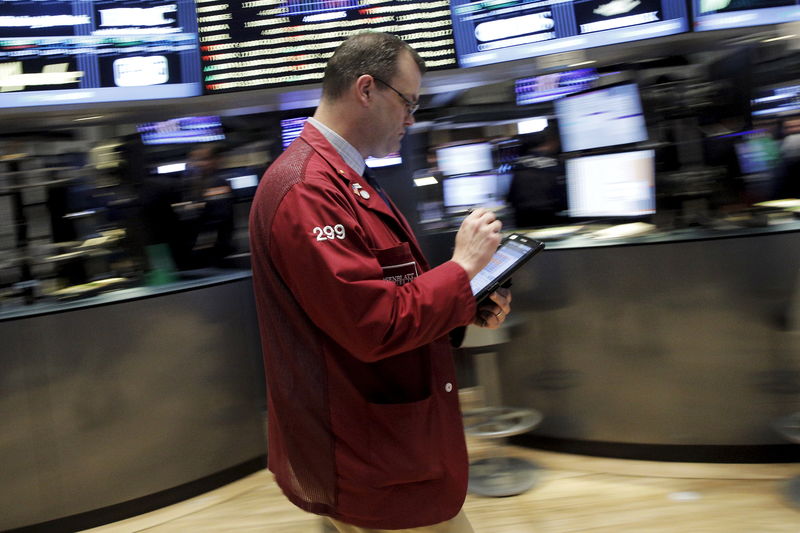By Yasin Ebrahim
Investing.com - Wall Street capped off Friday with its biggest weekly loss since the financial crisis. But the Federal Reserve's pledge to support the economy in wake of a growing coronavirus epidemic helped at the end of the day, with buyers coming in.
The Dow Jones Industrial Average fell 1.38%. The S&P 500 slipped 0.83% and Nasdaq Composite ended flat.
Federal Reserve Chairman Powell on Friday, in an unscheduled statement, stoked rate-cut hopes, saying the central bank would act to support the economy after he conceded that the coronavirus was a threat to the economy.
Investor sentiment was also boosted by reports the Trump administration is mulling economic responses to the coronavirus, including a targeted tax-cut package.
The rapid pace of the outbreak shows no sign of easing, with more than 82,000 cases reported worldwide, following a jump infection in South Korea and Italy this week. While Nigeria and New Zealand also reported their first infections.
The World Health Organization on Friday raised its risk assessment of the Covid-19 to a "very high" global level from "high" in late January but stopped short of declaring a coming pandemic.
In mainland China, however, infections are slowing and authorities are ramping up efforts to open factories in a bid to alleviate supply chain disruptions.
“It feels to me that China isok getting the coronavirus under control. You look at the numbers, they’re coming down day by day by day.” Apple CEO Tim Cook said after claiming that Apple’s factories in China were nearing full production.
Apple (NASDAQ:AAPL) ended lower for the day, but the broader tech market was underpinned by rally in chip stocks, with bargain-hunting investors seemingly eager to snap up beaten-down semis like Nvidia (NASDAQ:NVDA), Advanced Micro Devices (NASDAQ:AMD) and Micron Technology (NASDAQ:MU).
The Philadelphia Semiconductor Index ended the day 2% higher.
Energy stocks shrugged off a steep selloff in oil prices to end the day in positive, helping to spark a rebound in the broader market.
On the earnings front, meanwhile, investors had to contend with mixed quarterly reports.
Beyond Meat (NASDAQ:BYND) (NASDAQ:BYND) slumped 15% after the company reported a surprise quarterly loss, which offset better-than-expected revenue.
Wayfair (NYSE:W) fell 10% after its quarterly earnings fell short of Wall Street estimates as costs continue to rise amid a recent ramp-up in hiring.
